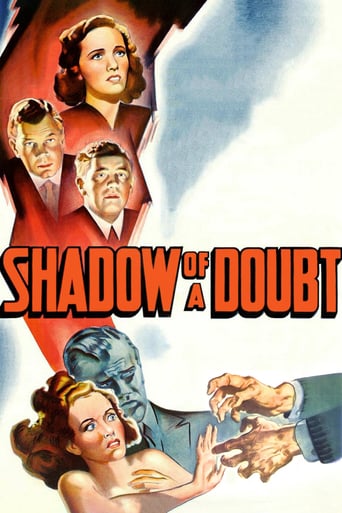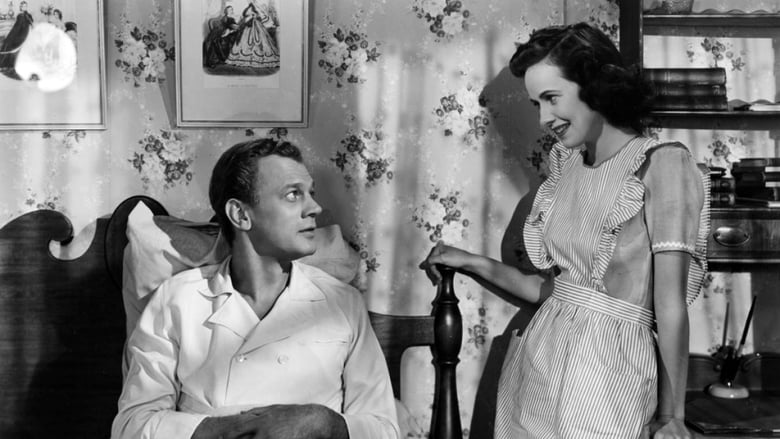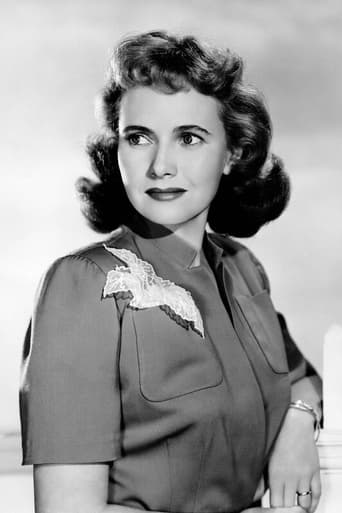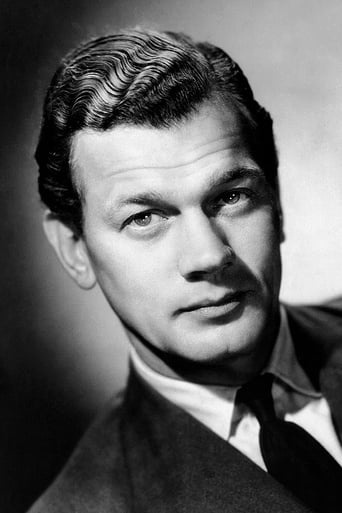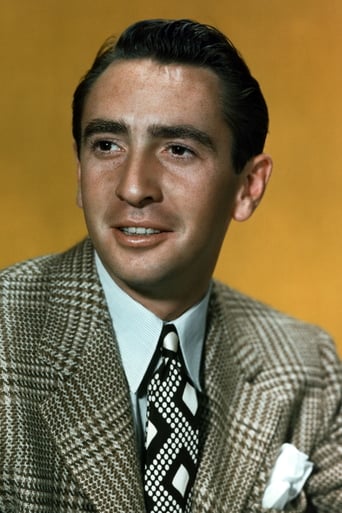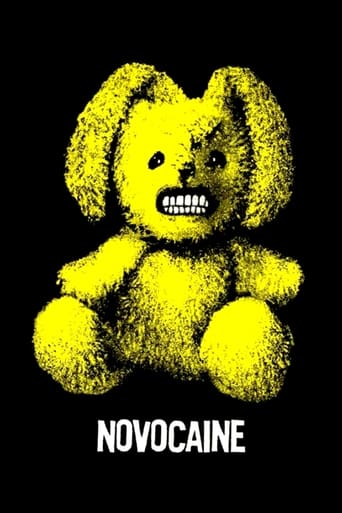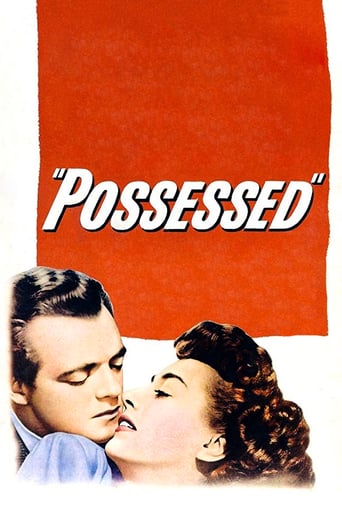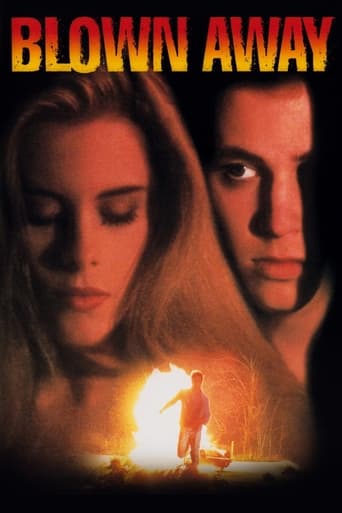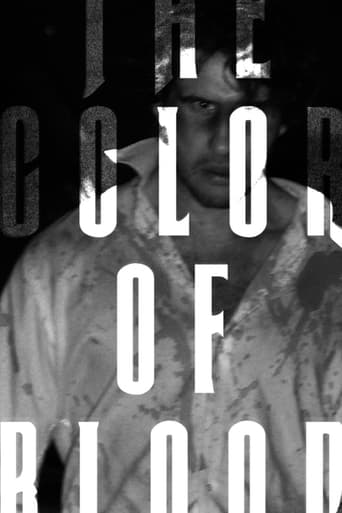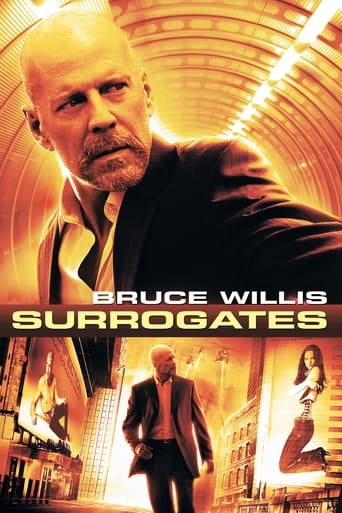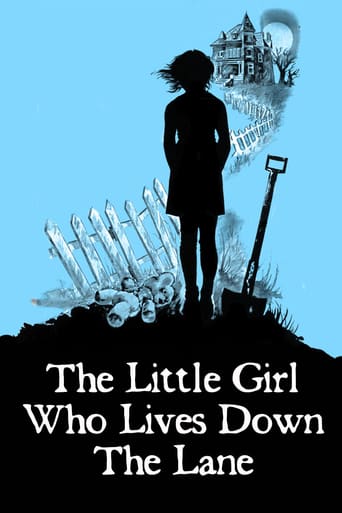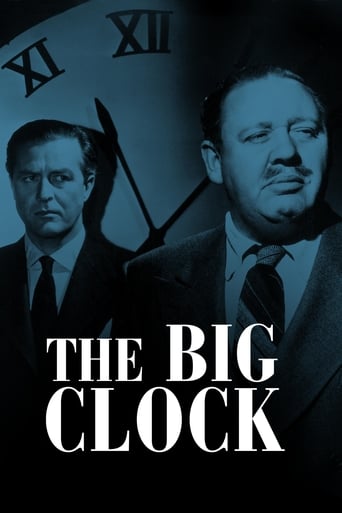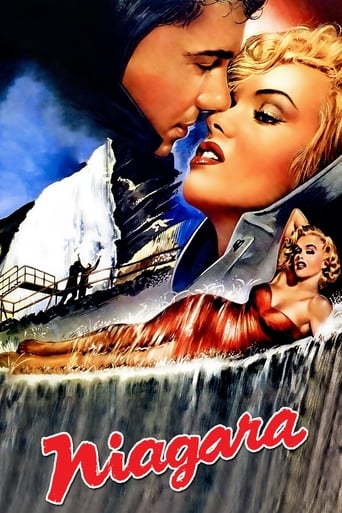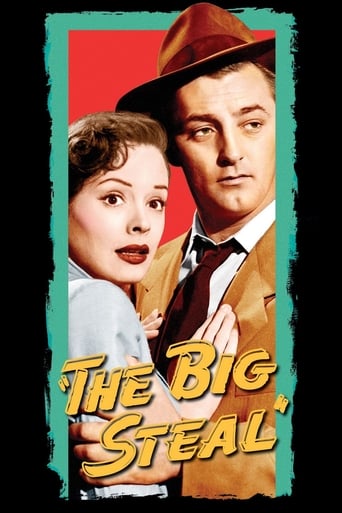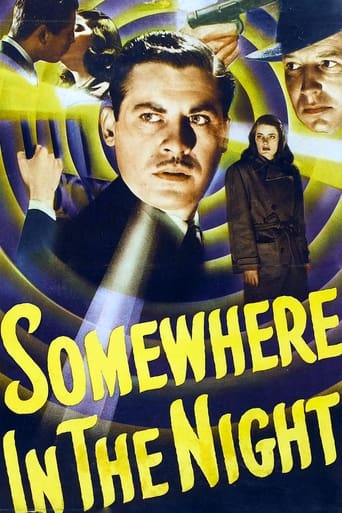Shadow of a Doubt (1943)
Just when Charlotte ‘Charlie’ Newton, is feeling especially frustrated by the lack of excitement in her small town in California, she receives wonderful news: Her uncle and namesake, Charlie Oakley, is coming to visit. However, as secrets about him come to the fore, Charlotte’s admiration turns into suspicion.
Watch Trailer
Cast


Similar titles
Reviews
'Shadow Of A Doubt (1943)' is certainly not Hitchcock's finest - though he himself considered it his favourite - as it succumbs to a slow pacing and general lull in interest - or specifically tension - due to its mostly nonchalant nature. This unconventionally domestic film-noir thriller still sits comfortably in the iconic director's repertoire as an early example of his ability to eek suspense from a seemingly simple and mundane situation, though, here in the long term. The flick is surprising in the minutia rather than the overall arc - it's pretty obvious from its title and opening where it's going - and the excellent performances sell this kind of unsettling, long-term, intention-turning home-invasion that only really escalates because our protagonist can't let go of the information she's found out, never-mind the fact that she just had to find it out in the first place. Curiosity really did kill the cat in this one and it is interesting that ignorance truly would have been bliss for all the major players here. But once you know, you can't go back and its this central theme that's incredibly interesting, compelling and not all that often explored. Neither is the true tear she feels between family and morality, which is also a gripping and complex problem to grapple with. Indeed, the feature works on many levels and has many levels to it, with some unconventional aspects even coming in the form of what's not there as much as what is, but there's not a full exploration of all of these ideas and some of them are just mere moments. It will pay off more if you're willing to get on-board with the deeper messages and moral quandaries it may present, but is still an engaging and entertaining affair even on its surface. 7/10
"Shadow of a Doubt" was reputedly Alfred Hitchcock's favorite of his own films, and I guess that really must mean something since he directed more than three dozen of versatile cinematic classics that are all universally considered as brilliant. With all due respect, however, I don't concur with the Master. Even though "Shadow is a Doubt" is an intelligently scripted and highly original thriller, my personal preferences lie with the more visceral horrors that Hitch made, like "Psycho", "Frenzy" and "The Birds". Nevertheless, I like to think it's very significant that Hitchcock names this one as his favorite and, to me, it proves that he also has a predilection for horror and sadism. Rather than choosing for his uptight thrillers ("Read Window", "Vertigo" ...) or his convoluted conspiracy thrillers ("North by Northwest", "The Man Who Knew Too Much" ...), he prefers the dark little tale of a cold-hearted psychopath arriving in a sleepy small town and turning the lives of his unsuspecting family members upside down. Our visionary director clearly finds tremendous joy in unleashing pure evil, in the shape of charming and wealthy self-made man "Uncle" Charlie Oakley, upon the peaceful community of Santa Rosa, California. But even more remarkable is that the naïve and picturesque community, and particularly Charlie's beloved adolescent niece (also named Charlie after her uncle), is subconsciously craving for and warmly welcoming the embodiment of evil! Young Charlie is desperate for some excitement in her mundane life, so imagine the confusion when she slowly realizes that her "special-bond" uncle is the notorious Merry Widow Murderer and the subject of a nationwide police manhunt. It's praiseworthy how Alfred Hitchcock delivers a tense and atmospheric thriller in which the fearsome serial killer isn't even seen committing any of the vile crimes he's wanted for! Young Charlie puts the pieces of the mysterious puzzle together herself, with the help of her love-interest police inspector, and meanwhile Uncle Charlie becomes less lovable and more menacing. I've rarely seen a director playing with the emotions of his lead characters so efficiently, while both Theresa Wright and the genius Joseph Cotton make the most out of their unusual roles. The eye of detail in the script and in Hitchcock's direction is fantastic! For example: as a sort of running game, young Charlie's father and a befriended neighbor (Hume Cronyn) are always debating original and vicious methods for murdering each other, even though they are both normal and slightly dull family men. It's further proof of how the whole of Santa Rosa is unwillingly embracing the coming of evil. I'm changing my mind, in fact... "Shadow of a Doubt" must be listed in my top five favorite Hitchcock films!
"Shadow of a Doubt" was pivotal in Hitchcock's career as the first movie set in directors' Promised Land: America. And if I'm not sure that he held the film in higher regards than some later classics, I'm pretty sure though that the film was a sentimental favorite. And the word 'sentimental' is crucial as the underlying theme of "Shadow of a Doubt", is "when idealization meets deception" and we idealize a big deal in the name of sentimentality.So sentimentality was a prevalent element of Hitch' premiere in America, he wanted the most American-looking location, one you couldn't tell in which state it was. The privilege went to Santa Rosa, a postcard little town of old fashion charm, with an obligatory library, train station, bank, all in one copy. Townspeople know each other by first name, from the priest to the brave overweight traffic cop. The town also neighbored some famous Californian vineyards, which made the shooting all the more interesting for Hitch and all.If the sleepy little town could appeal to any outsider in quest of peace, some insiders would have a much different opinion. Charlotte, played by the sweet and talented Teresa Wright, nicknamed Charlie after her mother's brother but will be called Charlotte in this review for clarity's sake, doesn't feel exactly like a fish in water. When we first see her, she's lying on her bed, wondering how she can get off this unbearable heaviness of boredom. And she can't find any supports from her parents played by former co-stars, from "Mrs. Miniver", Henry Travers, a banker, and from "The Little Foxes", Patricia Collinge as the devoted housewife.All these faces fit together and the actors are so natural we really believe this is a family, but there are many hints suggesting that each member tries to escape from a suffocating routine The mother is mentally rooted in the past and mourns her brother, Charlie whose absence had a profound effect on her well-being. The father shares a strange hobby with his friend Herb (Hume Cronyn in his debut) imagining the perfect crime as if they were about to write a crime novel. The precocious little sister Ann, is a bookworm, as indicated by her glasses, and doesn't indulge to child's activities, and the youngest child Roger enjoys counting steps between places. Unrealistic? I used to do the same thing as a child.As usual, Hitch manages to create eccentric yet realistic characters, and Charlotte, the one person who had her feet on the ground decides to invite her Uncle. She learns that Uncle Charlie is coming to pay a visit after many years of absence. And it's not much the news that delights Charlotte, but the fact that she and her uncle had the same idea, she calls it telepathy, we call it idealization. We all feel a deep connection with the people we love and will find signs everywhere. And sneaky Hitch provides us the same signs, so we can also feel that bond. Narrative-wise, it's excellent because in a film where the bad guy is the main protagonist, Hitch knows we have to root for him a little, he manages to create the empathy by giving similar feelings to the good characters.So Hitchcock (who's all about signs) give us the ultimate sign of a deep bond between Charlie and Charlotte. When we first see Uncle Charlie, played by the great Joseph Cotton, he's also lying in a bed in some lousy place in New Jersey, just like his niece. But obviously, he has darker motives as suggested by the cops who try to arrest him. Uncle Charlie is a fugitive, a criminal whose record will be revealed progressively, but we're already ahead of Charlotte and her family. And the first visual sings of the titular shadow seem to be conveyed by the heavy cloud of gray smokes coming from the train, when Uncle Charlie arrives. Hitchcock, loved contrasts and the idea of sleazy evil coming to disturb the quiet peaceful town, something so impossible that no one would accept it, not even Charlotte, maybe not even us.It's a strange feeling because as soon as he comes, Uncle Charlie is like the touchstone of the family, such a natural charismatic character that we somewhat want the happiness to be maintained to this status quo. However, Uncle Charlie constantly throws hints to the face of Charlotte, and her resistance to face the truth takes its source from her admiration toward uncle. Before being a psychological battle, it's an internal one, and the whole first act is your typical Hitchcockian quest of a mysterious identity. The film gets actually more interesting once Charlotte knows, and has to digest the contrast between her idealization of her Uncle and what he really is, and it's such a startling contrast that she knows her mother mustn't know the secret, because it would kill her, it becomes a life-and-death situation.It also allows to cops not to arrest him in the house and so begins a psychological battle between the man-who-wants-to-stay and the girl-who-wants-him-to-leave and it naturally culminates with murder impulses from both sides. And while the story leads us to its thrilling resolution, we discover deeper and darker aspects of the protagonists' personalities, confronting two visions of life: cheerful and optimistic and twisted and misanthropist, and Teresa Wright is as convincing in the positive as in the negative emotions. And while the good triumphs over the evil, she's slightly contaminated by her Uncle's spirit, and might have her own shadow of a doubt regarding the goodness of human nature.While a masterpiece in its own terms, the film has a few little flaws but Hitch, and even us, viewers, keep on idealizing "Shadow of a Doubt", just like the family idealized Uncle Charlie, ignoring his darkest side. It's part of human nature. The question is, do we idealize the film better for its good or for its dark side?
In my 72 years of age, which happens to be the same time since this picture was released(1943), I thought I had seen all of this Master of suspense movies, but I was delighted to discover this one. What I love about this film, is how he plays with all different kind of emotions. The beginning of the film is kind of creepy. The following scenes, hint of what type of Person Uncle Charlie is. How he travels in the train to Santa Rosa, and gets off the train, it is a basic indication of this. The movie has moments to laugh, to be serious and meditate about what the actors say, and shows true emotions of the different members and friends of the family. Even when many of us would suspect the outcome of this plot, the real suspense is to know how this would happen. One of the last scenes where Little Charlie and her brother and sister go out to say good bye to their Uncle, is very obvious that something unexpected will happen, but again, the mystery is: What will happen? Great Movie. I agree with Hitchcock that this is his best one.

